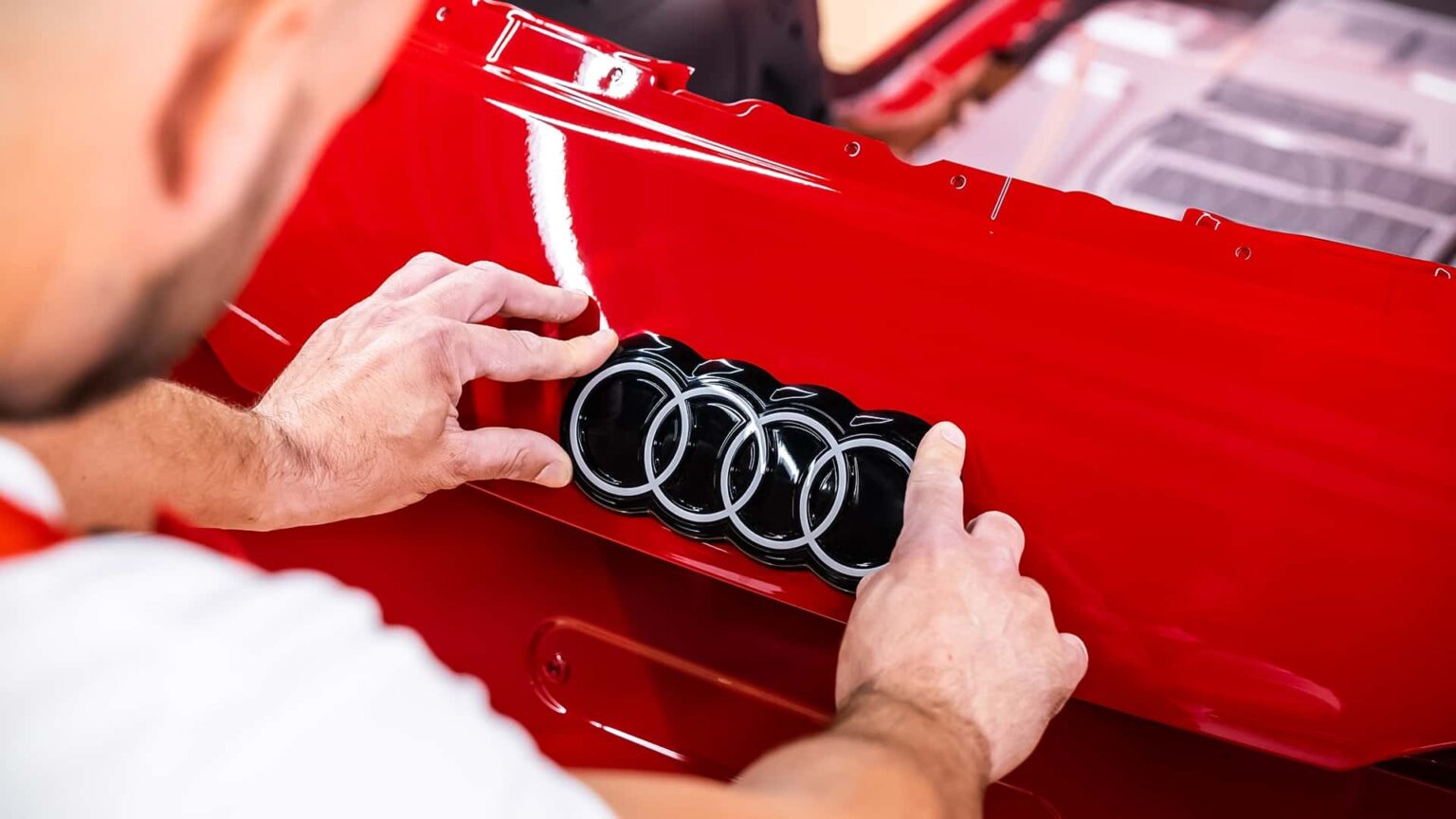Audi is one of many car manufacturers that announced ambitious plans to go purely electric even before the European Union’s 2035 ban on cars that generate harmful emissions. However, like others, it has recently backtracked from its lofty goal of becoming EV-only by 2033, opting to keep combustion engines well into the next decade, perhaps even beyond.
It’s worth noting that the EU is leaving the door open for vehicles with combustion engines that run on synthetic fuel, provided it’s carbon-neutral. However, e-fuels are unlikely to scale up to industrial levels within a decade, effectively making the EU’s decision a de facto ban on new combustion-engine cars. But Audi doesn’t believe Europeans will only see electric vehicles when they walk into a new car dealership in 2035.
Photo by: Chris Rosales / Motor1
In an interview with German business newspaper Automobilwoche, the Chairman of Audi’s General Works Council stated that both the EU and car manufacturers will face resistance from people unwilling to give up gas engines just yet. Jörg Schlagbauer is quoted as saying he “doesn’t believe that customers will let politicians and manufacturers dictate which products they should drive.”
During his candid interview, the head of the works council admitted Audi shouldn’t have rushed into setting sweeping electrification goals: “In the past, we made some unfortunate decisions, guided by the corporation [Volkswagen Group], such as the early, very strong commitment to electromobility. In focusing on e-mobility, we also lost flexibility in production, which would have been needed when the mandated e-mobility did not work as planned.”
But Schlagbauer doesn’t doubt the future is electric. However, he thinks it won’t arrive as early as the middle of the next decade: “I don’t question electric mobility at all. We will all be driving electric vehicles. I just don’t believe that we will be ready by 2035, especially when it comes to the ecosystem that e-mobility needs.”
Photo by: Audi
He has a point. We can’t just flip a switch and expect a fully developed charging infrastructure across Europe, let alone the entire world. There’s another issue. Automakers are working to reach price parity between combustion and electric cars, but we’re not there yet. It might happen in the next decade, and not just because EVs could become cheaper as battery costs decrease. Making combustion engines comply with stricter emissions regulations (Euro 7) will also raise their prices, narrowing the gap with equivalent EVs.
While Audi’s Chairman of the General Works Council believes the day will come when we’ll drive EVs, Toyota’s Chairman Akio Toyoda doesn’t think electric vehicles will ever surpass a 30% global market share. Whatever the case, all signs point to Europe being at the forefront of EVs, given the EU’s aggressive agenda to end sales of new gasoline and diesel cars sooner rather than later.
Audi’s rival, Mercedes, has also recently announced that it will keep gas engines in its lineup longer than previously planned. The company’s chairman and CEO, Ola Källenius, stated that the three-pointed star has made a “course correction” to prolong the life of internal combustion engines, describing it as a “rational approach” to avoid neglecting conventional drivetrains.
Photo by: Alex Goy | Motor1
BMW, the world’s largest luxury car brand, has also voiced caution. Speaking in May during the company’s Annual General Meeting, CEO Oliver Zipse said putting all bets on EVs “leads down a dead-end street” and emphasized that “political goals must reflect market realities.” At last year’s Paris Motor Show, he called the 2035 ban “no longer realistic” and warned that ending combustion-engine production “could also threaten the European automotive industry in its heart.”
As recently as March, the EU reaffirmed its 2035 ban on the sale of new combustion-engine cars. However, it’s not set in stone. According to Politico, the European Commission will review the legislation later in 2025, under pressure from automakers seeking clarity for long-term planning.
Whatever happens in Europe will have global ramifications, given how some of the biggest names in the industry come from the continent.
Read the full article here


